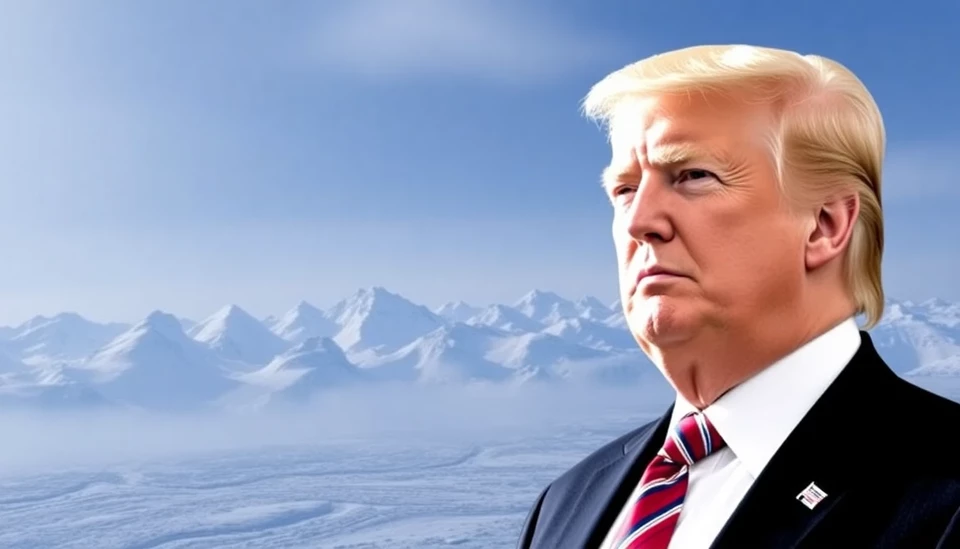
In a striking display of his economic ideology, former President Donald Trump has been vocal about his perspective on global relations, firmly believing that economic power can dictate foreign policy. His recent remarks spotlighted specific regions, emphasizing the Americas, particularly Columbia, and extending to the Arctic territory, heralding a bold stance on international competitiveness and trade agreements.
During a recent event, Trump articulated his notion that a nation’s economic strength should correlate directly with its global influence. He pointed out Colombia’s vital geographical position and immense resources, urging awareness toward potential economic alliances. He referenced the country’s rich agriculture and mineral wealth, suggesting that forming closer ties could benefit both American and Colombian interests, especially in the context of regional safety and stability.
In his signature style, Trump critiqued what he considers a lackadaisical approach by current administration policies that dampen the United States' assertiveness on the global stage. He highlighted the opportunity for American companies to invest in developing Colombian markets, juxtaposing this idea with his vision for dominating the Arctic, an area rich in natural resources and strategically significant in the wake of climate change and changing global shipping routes.
Trump's Arctic strategy insinuates a stance that prioritizes proactive engagement with this critical region, where competition over resources, particularly oil and gas, is intensifying. He posited that America's natural abundance provided the country with a unique advantage that must be leveraged rather than sidelined. His approach suggests not merely environmental stewardship but rather an economic plan hinged on tapping into all available resources while engaging with nations active in Arctic circles.
This strategic focus on both Colombia and the Arctic exemplifies Trump's broader ideology, which intertwines nationalism with economic strategy. By projecting economic might as a form of power, he underscores the notion that a robust economy fosters a stronger geopolitical stance. His remarks have sparked discussions around potential trade agreements, investment opportunities, and the geopolitical ramifications of increased U.S. involvement in Latin America and Arctic affairs.
As the political landscape shifts leading into the upcoming elections, Trump's assertions resonate with his core supporters who value strong economic policies. However, they also pose a challenge for his opponents, who may be compelled to reckon with the implications of such perspectives on diplomacy and international relations. The discourse surrounding globalization, complete with nuances of prioritization of national interests, is set to intensify as key players navigate this evolving narrative of economic influence.
Ultimately, Trump's vision for the future is not merely rooted in past ideologies but is a call for a paradigm shift, where economic power is the cornerstone of national strength. This perspective invites scrutiny as to how far nations should go in leveraging economic alliances to assert their place on the world stage, a debate that will likely remain at the forefront of political dialogues as the world continues to grapple with emerging challenges and opportunities.
As this narrative unfolds, stakeholders in both the U.S. and abroad must consider the balance between economic might and diplomatic relations in shaping a stable global environment for the years to come.
#Trump #GlobalEconomics #Colombia #ArcticStrategy #ForeignPolicy #EconomicPower #NationalInterests #TradeAgreements
Author: Rachel Greene




